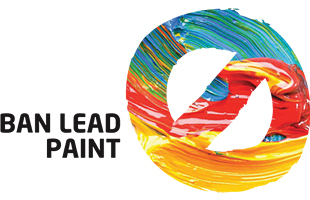 The International Lead Poisoning Prevention Week, organized annually by WHO and UNEP took place from 21 to 27 October2018. LHAP organized an event on phasing out lead from paints, under the patronage of HE Dr. Ibrahim Bani Hani, Member of Parliament (Health and Environment committee) and of the Circle of Mediterranean Parliamentarians for Sustainable Development (COMPSUD). The event, part of the 7-year long advocacy of LHAP for Jordan to develop legislation to monitor the lead-containing paint market, delivered capacity building for 80 staff from municipalities and local councils of the Irbid-Bani Kenanah sub-governorate, on lead sources, health, environment, economic and social issues and impacts. An awareness event of painting the pedestrian way of Jadara, one of the Decapolis in North West of Jordan, complemented LHAP’s contribution the international week.
The International Lead Poisoning Prevention Week, organized annually by WHO and UNEP took place from 21 to 27 October2018. LHAP organized an event on phasing out lead from paints, under the patronage of HE Dr. Ibrahim Bani Hani, Member of Parliament (Health and Environment committee) and of the Circle of Mediterranean Parliamentarians for Sustainable Development (COMPSUD). The event, part of the 7-year long advocacy of LHAP for Jordan to develop legislation to monitor the lead-containing paint market, delivered capacity building for 80 staff from municipalities and local councils of the Irbid-Bani Kenanah sub-governorate, on lead sources, health, environment, economic and social issues and impacts. An awareness event of painting the pedestrian way of Jadara, one of the Decapolis in North West of Jordan, complemented LHAP’s contribution the international week.
Following Jordan’s recent ratification of the Minamata Convention is campaigning about mercury, with the support of the International POPs Elimination Network (IPEN), the Ministry of Environment and UNDP. 1475 students, teachers, CSOs, university students and staff from 8 governorates were familiarised with the different articles of the Minamata convention, the sources of mercury, how it reaches the human body and the environment and the health, economic and social impacts of mercury exposure. The findings of the Mercury Initiative Assessment (MIA) Report prepared by the Ministry of Environment of Jordan, reveal which are the major mercury sources in the country:
- Waste water system/treatment (772 kg Hg/year)
- Other materials production – Cement (1,519 kg Hg/year)
- Dental amalgam fillings (“silver” fillings) (3,074 kg Hg/year).
- Informal dumping of general waste (3,825 kg Hg/year)
- Use and disposal of other products (4,535 kg Hg/year)
- Waste Deposition (8,925 kg Hg/year)